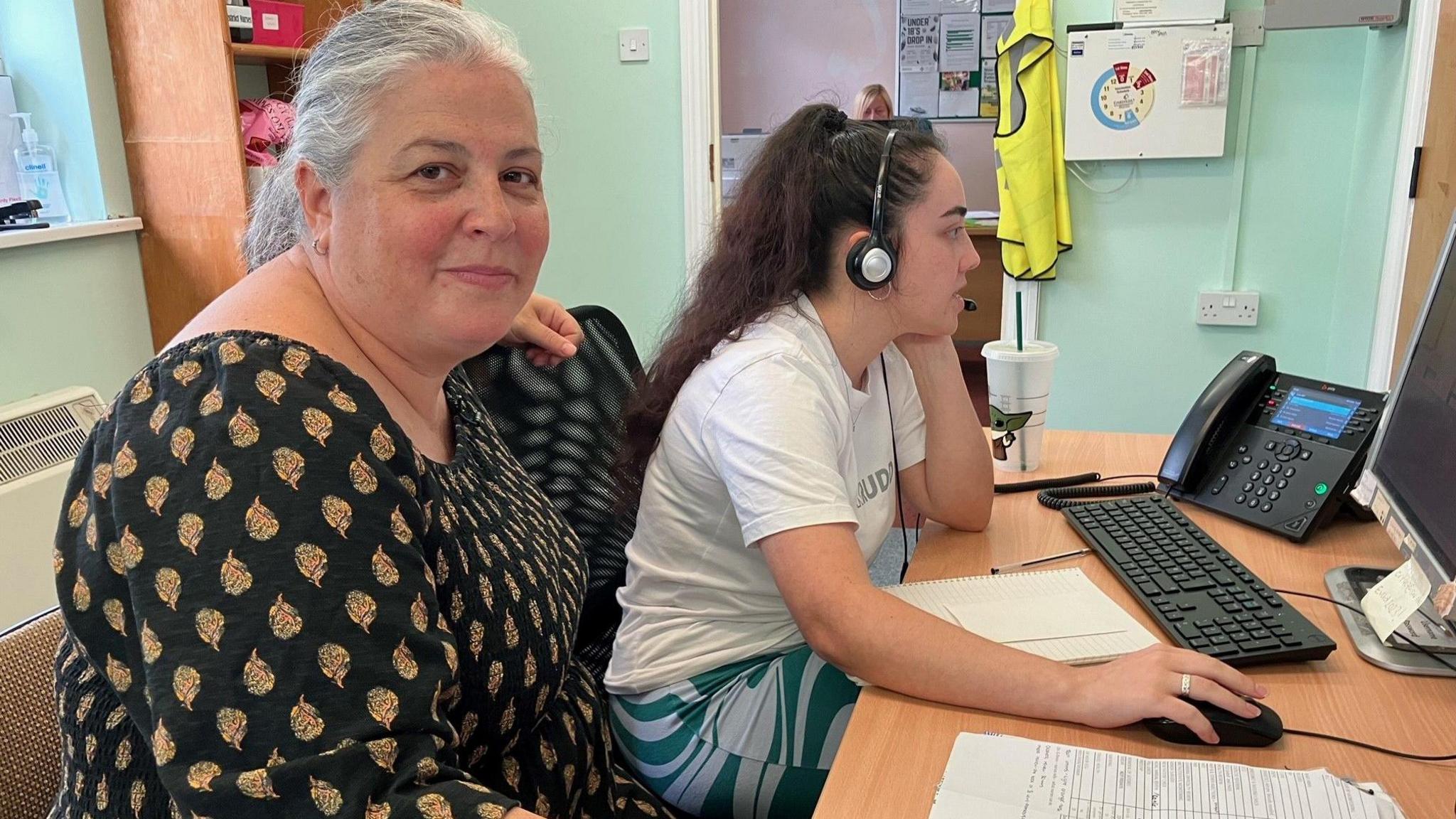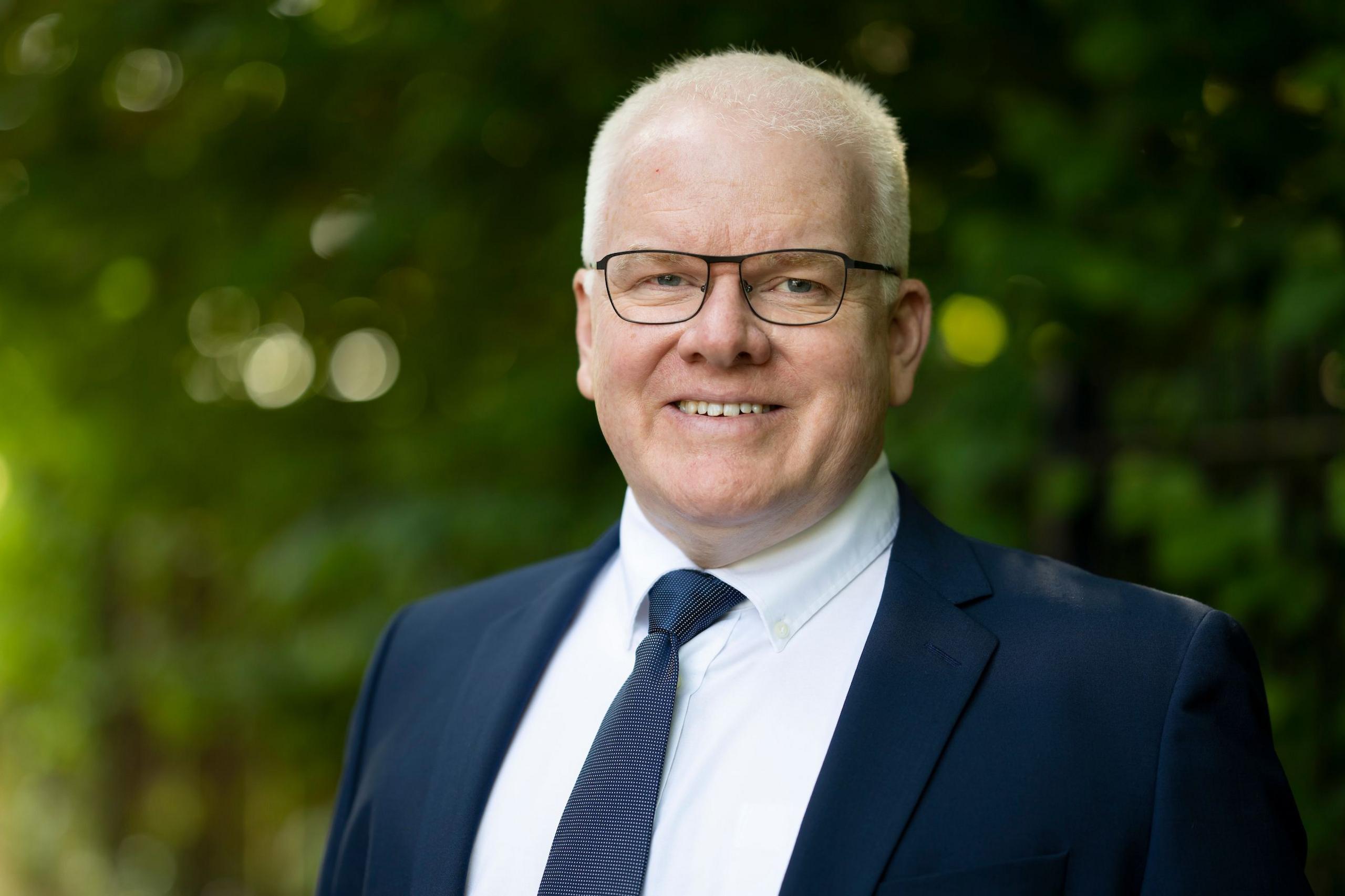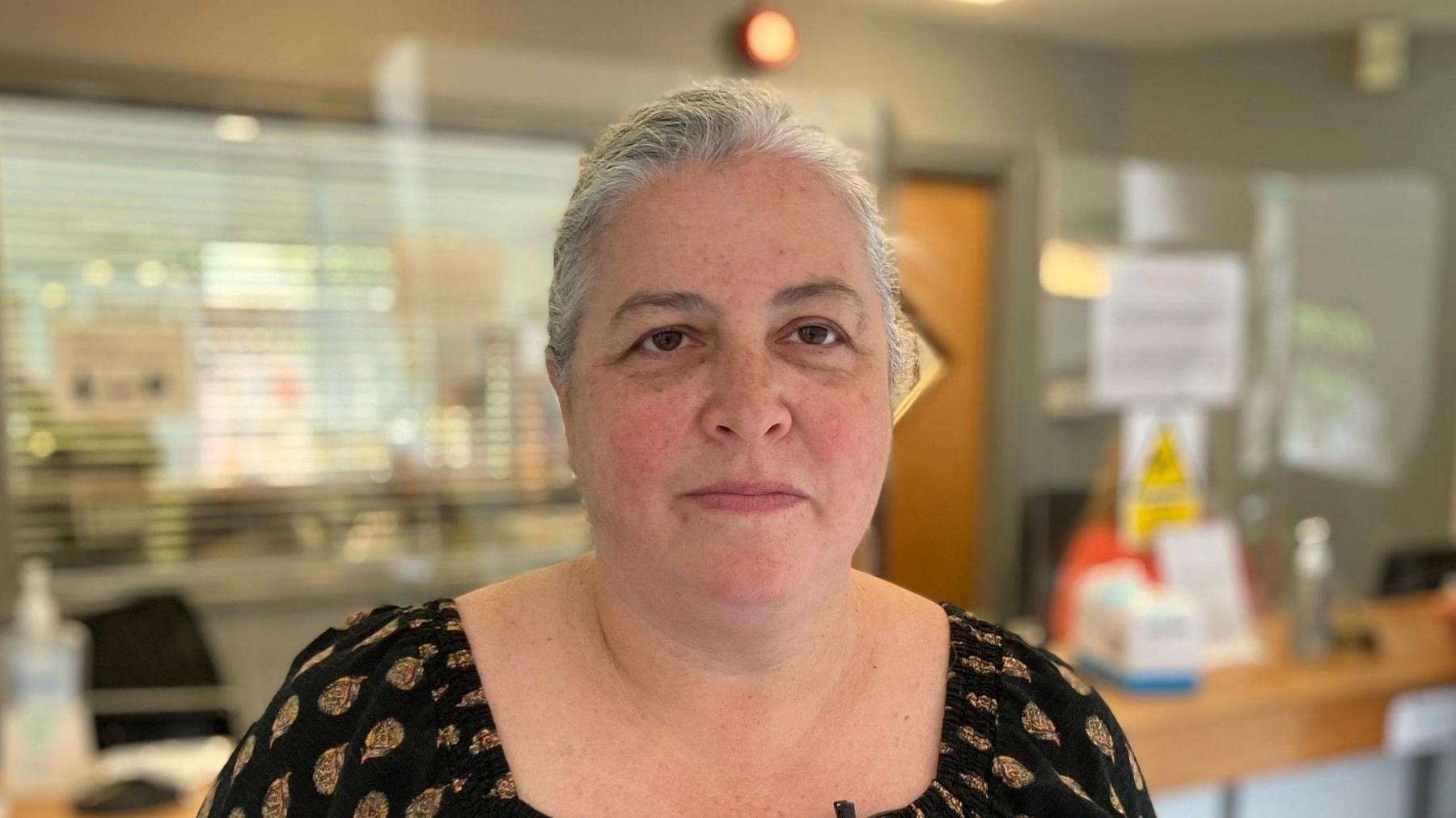Top GP says doctors are united in fear about NHS

Dr Fran Ferner has struggled to recruit colleagues
- Published
"They can’t get through, they can’t get appointments, they are being asked to ring back, they’re being redirected elsewhere."
Redlands Surgery in Penarth, Vale of Glamorgan, stood on the edge of a precipice earlier this year after it lost two GPs, with a third taking maternity leave.
Dr Fran Ferner, who has been a GP there for 21 years, said despite their best efforts they couldn’t recruit a single doctor and feared they would have to close.
It would have been yet another surgery closure – joining about 100 practices that have closed in Wales in just over a decade.
Thankfully for their 9,400 patients, the surgery was saved with some last-minute appointments.
But demand continues to be huge and it’s not unusual for the surgery to get 400 calls before lunchtime.
Dr Ferner said: "Sometimes I’ll come in at 8 o’clock, do some admin and start my clinics… sometimes it can be 3 o’clock before I realise I haven’t been to the toilet or had something to eat. It’s non-stop."
This experience is not unusual, according to fresh analysis by the British Medical Association (BMA) in Wales.
It claims similar pressures are having a "heart-breaking" effect on doctors and patients alike.
According to its most recent Welsh survey of GPs, 91% of respondents said they were routinely unable to meet patients demand due to "unsustainably high workloads".
The survey, conducted in April, also reveals 87% feared this was having an impact on patient safety.
It also suggested 53% of GPs who are partners - responsible for running their own practices - are planning to leave within three years.
In total, 375 family doctors in Wales responded to survey - about 28% of the BMA's GP members.

Dr Gareth Oelmann said 95% of GPs had a negative response about the future
Dr Gareth Oelmann, chairman of the BMA's GP committee in Wales, said GPs were "united in our fears" about the future.
"GPs have told me about the impact on their own health and wellbeing and their huge concerns for their patients. It’s heart-breaking," he said.
What did GPs say?
The following are extracts of anonymous comments submitted to the survey, selected by the BMA:
"My health is terrible now - physical and mental - and I am retiring within 12 months, much sooner than I had planned. Extremely sad to be leaving this fantastic job/vocation which I love, in such a parlous state
"Last year I took home £20,000 pre-tax after paying all my staff. The situation is beyond dire and I have no hope the NHS can be saved. I am determined this job will be my last in medicine and I am only still going because I know the practice will close if I stop. I don't want to make staff redundant"
"I am at my desk 12hrs daily. I feel I am slowly killing myself in order to maintain a functioning GP surgery"
"The profession is at the most dangerous point in my 35 year career. I fear the damage being done now may not be remedied"
The BMA also said the proportion of the NHS' budget spent on GP services has dropped from 8.7% in 2005-06 to 6.1%
Dr Gareth Oelmann said, without a "rescue package" from the Welsh government to stop practices closing, the "situation is grave" and if general practice fails "the rest of the NHS will follow".
Patients warned of further travel to see GP
- Published30 November 2023
Fear for GP surgery's future as contract abandoned
- Published24 April 2024
Man leaves GP of 77 years over appointment delays
- Published25 October 2023

Dr Fran Ferner said there was a lack of morale
Dr Ferner said the situation was urgent with people in the profession feeling "just a bit defeated. We've just had enough".
She added: "No-one is happy. Patients aren’t happy, the doctors aren’t happy, the staff aren’t happy and that lack of morale is driving people away."
Analysis
What's clear is primary care services in Wales are struggling to cope with huge pressures.
According to the latest workforce statistics, there are almost 2,500 registered GPs in Wales - the highest number recorded - with more female GPs than ever before.
But there has been a distinct shift in how family doctors are choosing to work.
Fewer are working full-time and fewer still are choosing to become partners and run their own practices.
This has resulted in a big drop in the number of surgeries, resulting in fewer but generally bigger practices.
The demand on those surgeries and the staff working in them, partly due to the aging population, is also greater than ever.
Last year GP practices in Wales received 27 million phone calls, arranged more than 19 million appointments and issued 65 million prescriptions in a country of just over 3.1 million people.
Even if there was money available to recruit more GPs to fill some of the gaps, it won't be a quick fix, as it takes about 10 years for someone to qualify and train to become a family doctor.
What is the Welsh government saying?
The Welsh government said GPs were highly valued and "we recognise the pressure GPs face and have heard the strength of feeling from the Save our Surgeries campaign".
It added: "We are investing in new ways for people to access primary care services, including community pharmacy and the 111 helpline, to help relieve some of that pressure.
“Our investment in GP services has been increasing year on year – we invested an extra £20m last year, on top of £12m over three years to support practices to improve access to services."